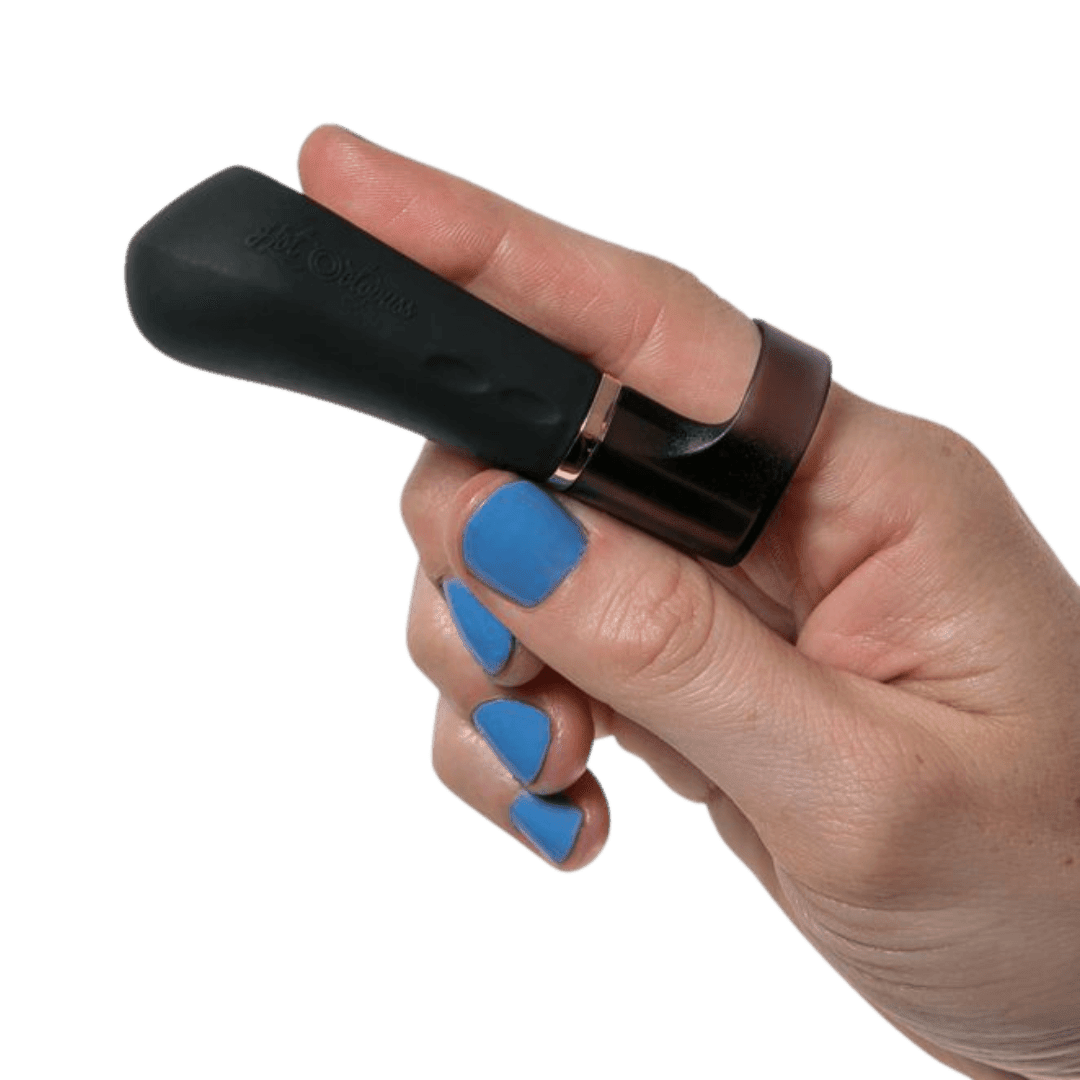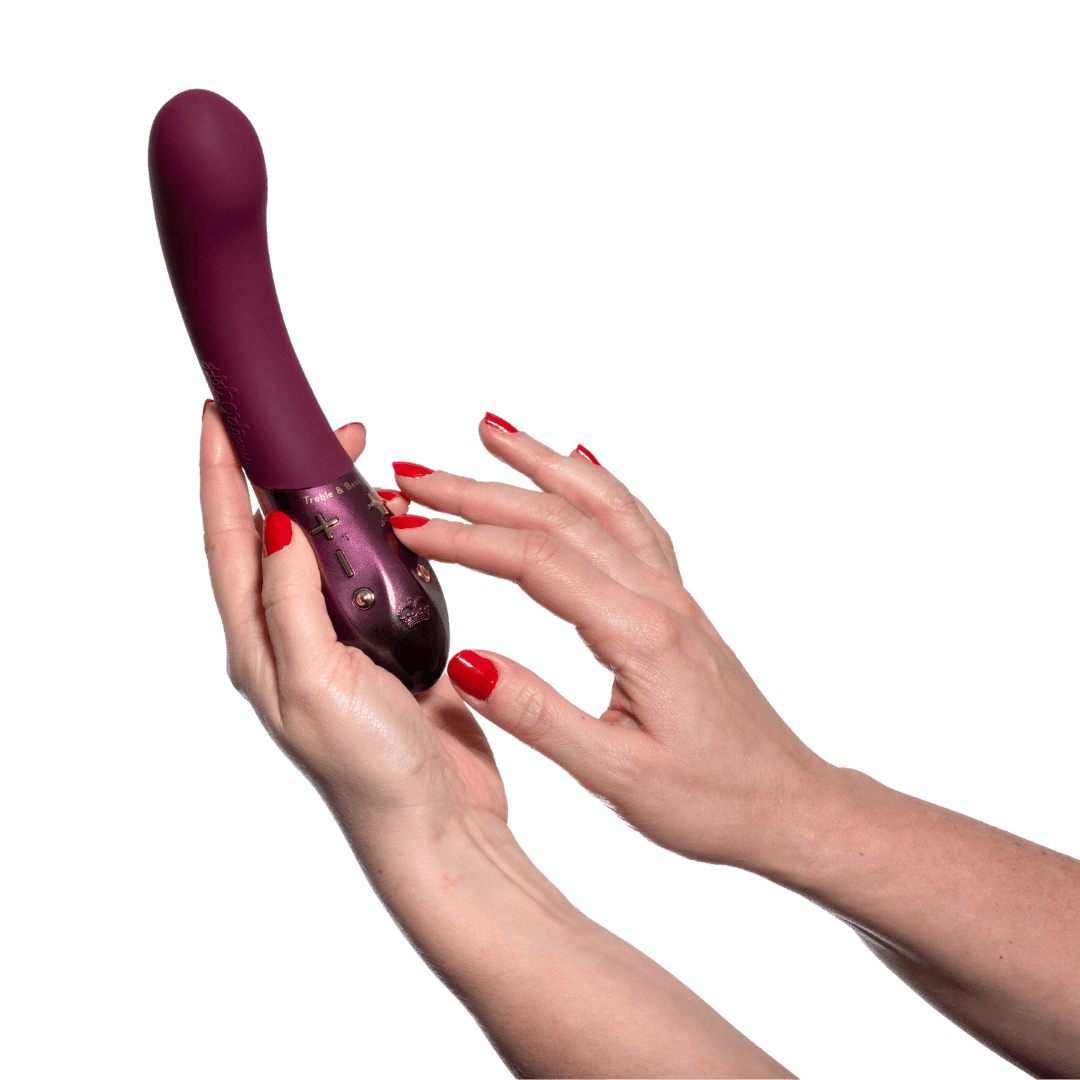Dysorgasmia – What Causes Painful Orgasms?
25 June 2024


When I first began suffering from dysorgasmia (painful orgasms), it was a disorder that didn’t even appear to exist, and it’s still little understood. Many people develop intimate ailments during their lives, but there often isn’t much support or information available. Many people, like me, are pretty much left to work it out for themselves. Talking about our experiences is vital to spread awareness, so here are mine with this condition.
What is dysorgasmia?
Dysorgasmia is a pain in the abdomen or pelvic area during or immediately after you reach orgasm. Not to be confused with pain during penetrative sex (dyspareunia); dysorgasmia is pain that is only felt at the point of orgasm, whether clitoral or otherwise.
The way I experienced dysorgasmia was as intense pain which hit me suddenly upon orgasm, rapidly increasing in strength until I would be doubled over and crying in pain. Think about the worst period cramps you’ve ever had, and then imagine them coming on suddenly. The pain would remain in my lower abdomen for a few minutes before starting to spread backwards, through my pelvis and towards my rectum, which would then lead to a bout of diarrhoea lasting a few more minutes before the pain would start to subside. The whole experience would last anywhere from 15-30 minutes. A short-lived but intensely painful episode.
The symptoms different vulva-owning sufferers are subjected to seem to be pretty similar, from what I have picked up from online forums, but the intensity of the cramps and longevity of the pain varies hugely from person to person. Some people also seem to only experience abdominal cramps, whereas for me the pain spread backwards causing diarrhoea. I’ve never known a penis owner who’s experienced the same issue, but according to Healthline, they definitely do. Dysorgasmia as a recognised disorder didn’t even appear to exist when I first began suffering from it in my early thirties, which made it a very frightening and confusing experience.
Can doctors help with painful orgasms?
According to Healthline, problems with orgasm are fairly common, likely affecting more than 20 per cent of women. However, this article from She Knows contradicts that figure, quoting a gynaecologist saying dysorgasmia is still rare and there are no treatments for the condition itself. It appears there is a lot of confusion within the medical profession about this issue!
A wide range of causes of dysorgasmia are known, including uterine or bladder disorders, ovarian cysts, endometriosis and pelvic inflammatory disease. However, when I went for help to the UK health service, none of these were looked into. Initially a nurse on the NHS helpline told me my severe pain was probably just my muscles contracting, as perhaps ‘they aren’t being used very often’. I said that wasn’t the case as I had orgasms regularly, but she didn’t have an answer for me. She got fed up with me after a while and sounded like she wanted to end the call as there was no solution to a problem I clearly didn’t have.
I continued to suffer and reported it to my doctor, who tested me for chlamydia and gonorrhoea; both results came back negative. The doctor didn’t pick this back up with me or refer me to hospital for any other tests. As the problems continued, I mentioned it once more to a nurse at my local GP practice, who again suggested I be tested for chlamydia. I explained that had already been done, so she pretty much just shrugged and said how strange it was, and left it at that. Admittedly I didn’t push the issue, I was quite young at the time and not as proactive as I am today.
The mental health impact of dysorgasmia
Articles about dysorgasmia all suggest there can be emotional or psychological causes for the condition too. Now I have never suffered from any sexual trauma (not in this lifetime anyway) and at the time I developed painful orgasms I didn’t appear to have any other mental health condition that could have contributed. But having the condition and not getting any support has caused mental health issues in itself. Getting little to no support from my doctor and, at the time, not being able to find anything on the internet, brought about feelings of isolation and unhappiness.
Dysorgasmia also impacted my relationship with my husband. It wasn’t intercourse that hurt, it was orgasm, but if you can’t relax and fully enjoy sex then you get a feeling of ‘what’s the point?’. My husband wanted to please me but I wouldn’t allow it as I knew how much pain I would be in afterwards, and this went on for seven years. It also affected my alone time as, again, what’s the point of masturbation if you can’t allow yourself to orgasm? That had a knock-on effect on my mental wellbeing as I felt there was something wrong with me, but nobody seemed to know what it was. So I suffered alone.
How do you cure painful orgasms?
So how did I cure myself? Via a Bowen therapist! I was seeing a therapist for lower back pain at the time, but I confided in her about my condition and she administered Bowen around the area in the hope that it might help. It didn’t help, but the therapist did, because she actually took an interest in my condition, and listened to what I said about it, to try to help me figure out what might be the cause.
She asked about my periods and I explained that I was taking the contraceptive pill and I tend to run the packs on so I don’t have a period very often. I’ve done this for years, and on more than one occasion I’ve asked my doctor if it is safe to do this. Their response has always been to say yes, it is safe, as you don’t have a ‘real’ period when you take an oral contraceptive. So if it’s only fake periods you are experiencing then there is no harm in running the packs on and not having a regular (i.e. three-weekly) break.
My Bowen therapist suggested I try a seven day break, and perhaps then another one to get back into some sort of cycle. It was worth a try to get out of pain, so I did. And my dysorgasmia went! Pretty much overnight! To date, I haven’t had any painful orgasms and that was a couple of years ago. What an absolute relief!
The causes of dysorgasmia vary from person to person, but for me, it was simply my contraceptive pill, Microgynon. I’ve been taking the pill for over 20 years and took it consistently during the time I suffered with dysorgasmia. My doctors are more than aware of what pill I’m on, so why did they not consider looking into that when I complained of the pain?
Don’t give up if you suffer from painful orgasms
If your enjoyment of sex and climaxing is being affected then that is not acceptable and you should be able to confidently visit your GP knowing they will help you. But unless you are struggling to get pregnant, doctors don’t seem to want to know. It’s important for sufferers to feel that they are being heard and that someone is taking them seriously. So what can we do?
Well the NHS can do plenty, and the more patients push for proper investigation and treatment, the more they will learn. As individuals, we can talk more, spread the news, share articles about sexual conditions – even if we don’t personally suffer with them, get the news out there! We often see social media posts nowadays about mental health conditions (hurrah!) as we battle to end the stigma, and we’re winning. So let’s do the same with sexual conditions and help end that stigma too.
If you know someone who is suffering, please urge them to speak to their doctor and not to take ‘there’s nothing wrong with you’ as an answer!
Petra Pan is a 30-something pansexual adult product and lingerie lover. She also blogs about sex and wellbeing.








